By Uran Kalakulla
Part Three
Nazism and Communism
Memorie.al / Nazism lasted 12 years, while Stalinism lasted twice as long. In addition to many common characteristics, there are many differences between them. The hypocrisy and demagogy of Stalinism was of a more subtle nature, which was not based on a program that was openly barbaric, like Hitler’s, but on a socialist, progressive, scientific and popular ideology, in the eyes of the workers; an ideology that was like a convenient and comfortable curtain to lie to the working class, to lull the sharpness of intellectuals and rivals in the struggle for power.
One of the consequences of this peculiarity of Stalinism is that the entire Soviet people, its best, most capable, hardworking and honest representatives, suffered the most terrible blow. At least 10-15 million Soviets lost their lives in the torture chambers of the KGB, martyred or executed, as well as in the camps of the gulag and others like them, camps where it was forbidden to correspond (in fact they were prototypes of the Nazi death camps); in the mines in the ice of Norilsk and Vorkuta, where people died from cold, from hunger, from crushing work in countless construction sites, in the exploitation of forests, in the opening of canals and during transportation in lead-lined wagons, or in the flooded barns of the death ships.
Continued from the previous issue
The authors of the aforementioned book have concluded that the victims of that hated system have been estimated at 86 million victims. That is, more than the victims of Hitlerism and the two great wars of the 20th century taken together. And while, I repeat, a trial was held against Nazism and its offshoots in the spirit of Nuremberg and is still being held today, there is still no international trial against communism! What is this great wonder? How does today’s democratic world tolerate such injustice?
And we Albanians are then surprised that in Albania there was never a serious and real trial against communism, against Enverism, except with words that, as time goes by, are also fading away. Have they left it to God alone to punish the security forces when the day comes for them to go to Lenin, Stalin and Enver Hoxha? O God, do not forgive, but punish the guilty who know and, no, do not know what they are doing!
Conversation with the critics
As in many areas of life, even for our past and present troubles, there are some critics in our country, who either deny almost completely our prison sufferings, or try to minimize them to the extreme. I do not know how many such people there may be, but I know for sure that for us, a denialist spirit reigns among them that sometimes go to the point of denigration. It seems that they, whether motivated by malice, and without being at all members of the gang of our executioners, since they have heard that among us, former political prisoners, there have been elements who do not deserve this designation, speak badly, without responsibility, as if we were not simply enemies of the communist regime, but enemies of those convicted by the communist regime!
I do not want to go deeper into their deformed souls, because it would be like trying to enter a path full of thorns, so twisted that not even a wild boar can cut through it without bleeding badly. There are other people who say, on the other hand, that exile was even worse than prison, without having experienced, fortunately for them, neither one nor the other. What do you say to these people, who try to describe the North or South Pole, just starting from a film sequence? This is like talking about the jungle, just watching a Tarzan movie!
Many of us, former prisoners and exiles, have had the misfortune to live both of these ugliness’s created by the evil mind of the red-headed scoundrel. And, to speak gently to our critics, I will use that well-known popular expression that says: “Come, father, let me show you the fields”! But, since the paths of the distant are endless in the field of evil (like those of God in the field of good), another type of critics say that, under communism, our entire country was a big prison. Thus, the entire people have removed the olive branches, just like those of prisons and internments. Why, wasn’t it internment to have your family in Tirana and you, as an engineer or doctor, be taken to Koman, to Vermosh, or to Bënçë. And I don’t know where else! And not for a year or two, but for five, six, ten years in a row!
These critics, let’s say of the third category, seem, in my opinion, to be somewhat gentler and as if they come somewhat closer to the reality of that miserable time. It was really not easy to leave the boulevard of Tirana and take the paths of the Northern Mountains. But these technicians or specialists, once every two or three months, would return to their homes, spend a few days with their families, meet their loved ones, and receive a salary that was somewhat better than the others, due to the “difficulties of the terrain and the long distance”.
But even where they worked and lived during their work, they usually had their own room anyway, and most importantly, they were in the fresh air, without policemen following them or in the dumps, not to mention the others. I, who am writing these lines, have experienced all these hardships on my own. I have tried working away from home, I have tried prison, I have also tried internment. And the latter with the whole family. But there is a very big difference between prison and all the others, honorable gentlemen.
Yes, the internment in the Tepelena camp, until 1954, was truly hell. It comes very close to the forced labor camps that many of us went through. Except, to be fair, even in the infamous Tepelena camp, you were with family members. And that is no small thing. Whereas in the prison camp you were alone, surrounded by people you would probably never have met in a normal life! And that, gentlemen, has its own problems. Just as the eater does not know the eater, the rich does not know the poor, the knight does not know the footman, so too, the one who has never experienced prison for a single day can never truly know the one who has spent the greatest and most important part of his life between the gloomy bars of prison!
I will tell you below a true story that happened to a close friend of mine, an honest, serious and truly intellectual man, persecuted all his life. Around the years ’94-’95, if I’m not mistaken, he had a dispute with a driver of the SHIK of Tirana, over a property issue of a shop. In the above-mentioned case, the spy swashed took out his pistol to shoot, but someone nearby raised his hand in “bravery” and saved my friend.
But since the pistol’s magazine has many cartridges, the aggressor fired again and wounded a boy present, in a sensitive place. So my friend, after the fight was over, together with other witnesses, sued the driver of the bus at the prosecutor’s office, and in the end, after much insistence and many witnesses, the aggressor was arrested. But when it came to the fact that the investigator called my friend himself as the second person to testify, as the injured party, they put him in one of the investigation’s cells, where they kept him for a good eight hours, before interrogating him.
When I met my friend after this incident, days later, he told me how much he had suffered in that cell. And he told me, with the greatest sincerity and naivety:
– “Then I really felt sorry for you, how much you suffered”!
I laughed and turned to him:
– “It seems to me that it was August, right?”
– “Yes.”
– “How many hours did you spend in that cell”?
– “A good eight hours”!
– “Did they take off their clothes?”
– “No, my dear, I was dressed as if I were going for a walk on the boulevard.”
– “Well, dear friend, I was in my underwear and sandals, on cement, barefoot and not just for eight hours…”!
I believe that the other words are superfluous…! However, in my last attempt to guide these critics of ours, and especially those who are not our genetic and determined enemies, on the right path, I would ask them to do just one very simple test, without any consequences for their well-being and health.
Try it once, gentlemen critics, to lock yourself in one of the rooms of your house for 24 to 48 hours, without going out at all, with the windows closed with curtains, with only one night light, with the door locked, so that it is not you who commands it, but someone else, with the right to go to the toilet only three times a day, no more than three or four minutes each time, with a little bread and a langur like ours, only twice a day, lying not in your soft bed but on the floor, on boards, a thin blanket under and another on top. And of course, without any fire in the winter. And of course, without newspapers, without books, without radio or television, without meeting with the family at all, without even going out the window. That’s all! And then come and talk together about how you felt about this kind of test, which, in the end, is nothing more than a test, done with your own free will, when you know that you yourself have the power to stop it whenever you want.
Now, after you have made such a test, multiply it in your mind, when the time is not two days and two nights, but hundreds and hundreds of days and nights, when it is not your room, but a dirty and cold dungeon like a refrigerator, when the door is opened not by your friend or family member, but by a policeman, who not only looks at you with hatred, but insults you and barks at you like a dog and, when he gets his fill, even beats you with a fist or a kick, when he feels like it. And then perhaps you could get closer, gentlemen critics, not to reality but, somehow, to the idea of our suffering…!
We, the opposition
During my time in prison, when I had the opportunity to talk to a fellow sufferer, especially when he had just started his arduous journey, I often heard that he had been condemned in vain, that he had done nothing. It was clear that the poor man was still under the pressure of the fear he had suffered in the interrogation. But there were also people who had really done nothing, or at least had not done any great, important action, but had mostly just said some word of dissatisfaction, such as, for example, that there is no cheese, no meat, why don’t they give us olive oil but soybean oil, when our country is full of olive trees, etc.
And such an expression was included in Article 73/1 of the Criminal Code of agitation and propaganda and was punishable by 3-10 years in prison. Thus, when you asked for cheese, meat, olive oil, it meant that you were against the regime, that you did not like Enver Hoxha, that you hated the party, that you sought to overthrow the regime of popular power, that you were connected to American imperialism and many other such endless threads, with a kind of “logic” reminiscent of that of the medieval inquisition, which led “sinners” to the stake, to be burned alive, just after saying a half-word, which supposedly showed that the unfortunate person had sold his soul to the devil.
If I could then make some kind of statistics about the mass of convicts, it would turn out that a large part was convicted for this kind of agitation and propaganda, but even more for attempted escape, which had a more severe punishment, because it fell under Article 64, of treason, with full paragraphs and a sentence of 10-25 years of imprisonment, or death. And the latter was not determined whether it was by shooting or by hanging.
I say that in this statistical plan, people convicted for real, direct opposition to the party and its power, were not many. Even among those who were convicted for this kind of work, such as those who were called “tails” of the Teme Sejko process, usually simple people, peasants, shepherds, Vlachs and minorities, the majority, were completely innocent, because they had no knowledge of that work at all, but had accepted blindly, frightened or accused by each other. Thus, at the end of this story, to be honest, few people had been imprisoned during my imprisonment that had really carried out genuine political activity or armed resistance to the ruling power.
These activities were most strongly developed in the first decade of communist rule, such as the uprising of Postriba (Shkodër), that of Zhapokika (in the South), the work of saboteurs and cooperation with them, in different parts of the country, the ‘Group of Deputies’, the ‘Group of Musine Kokalari and Qenan Dibra’, some political group of young high school students in Shkodër and Tirana, between the years ‘45-‘46-’47 and that of the Tirana Party Conference (1956) and, possibly, some other activity that I either do not know or do not remember. And for the latter I apologize to the reader.
The communist government, with its unquenchable thirst for blood and victims, during the nearly five decades of its absolute rule often sought, as the people say, “manna for the traitors”. It invented hostile groups and organizations itself and then shot those it did not want to see alive. Thus, the work of introducing weapons by the Sigurimi itself into the church of Shkodra, to eliminate the Catholic Clergy, then and in the future, as well as the representatives of the two other faiths in our country, especially when it was announced with a furor, which has not happened in any other country in the world, the liquidation of the institution of religion and the furor declaration of small and poor Albania as the only atheist country in the world. Not even Stalin himself, with all his followers everywhere in his empire, had the courage and stupidity to do this.
When the first two decades of Hoxha’s rule passed, in our country the system of terror, violence and espionage massively affected even children and the elderly. For a political prisoner, not only the family suffered, but an entire family circle. Thus, Albanians felt abandoned by the West, condemned to their bad fate. It is understandable that the impetus for active opposition, for active antigovernmental activity, began to decline more and more and the people, peasants, workers, intellectuals lowered their heads and unwillingly submitted to the miserable state, economic and cultural reality. Therefore, cases of true anti-communist political organizations were very rare.
Most people who could not stand violence and oppression, tried to break through the border to the free world. Whoever achieved this was certainly happy for him, but he left behind for his family and close circle a long and endless series of persecution, from exile, if not imprisonment, to being made unemployed, or from work and profession, straight to the pickaxe. But not everyone managed to cross the border; they were either killed there, or caught and then imprisoned or even sentenced to death, based on the infamous Article 64, “treason to the Fatherland”!
Our group, because of which we were imprisoned, was born at the crossroads of the two aforementioned stages, that of active resistance and that of passive resistance. Of course, political groups were also formed later, perhaps smaller in number, for example for distributing tracts, such as; “Nazim Seit’s Group of Three” in Shkodra, from the seventies. Meanwhile, the imprisonments continued without interruption, because it was the regime itself, and specifically Enver Hoxha, that was creating hostile groups right up to the feet of the highest courtiers, the so-called members of the Politburo.
The time had come for the “revolution” to eat its own children, meaning that this revolution had degenerated right to its core, like nerve tissue suffocated by cancer metastases. All the “anti-party” groups from ’46 to ’81 are of this nature, meaning from the “dissidence” of Sejfulla Malëshova and Ymer Dishnica, to the “conspiracy” of Koçi Xoxe; the suicide of Nako Spiro, Njazi Islam and so on; to the liquidation of Tuk Jakova and Bedri Spahiu, Liri Belishova and Koço Tashko, Dali Ndreu and Liri Gegë, Fadil Paçram and Todi Lubonja, Teme Sejko and his followers; Beqir Balluku with other high-ranking military officers; Koço Theodosi and Abdyl Këllez; the oil “saboteurs”, and then Mehmet Shehu, Kadri Hazbiu and what followed until the death of the dictator himself.
All these so-called anti-party groups were not like that at all. They could very well have been either the invention of Hoxha’s diabolical mind, or some kind of thought-stirring or a subversive variant, but no, never a subversive one, and always only an inevitable consequence of the Stalinist doctrine and practice that was based on the logic according to which, the more enemies there were in the emperor’s court, the more his throne was deified! Thus, for me, that is, for the democratic point of view, the real anti-communist groups were those of armed resistance or political organization that I mentioned earlier. Our group also falls into this category, which I will talk about below.
But first I want to emphasize that after the imprisonment and physical elimination of active political opponents, of whatever orientation they might have been, the communist regime began to imprison even quite ordinary people, who had not carried out any concrete political activity. They were not viewed favorably by the regime either as a class, or because they were not in the units engaged as loyal servants of the regime, even without being in the party, (front activists in neighborhoods and villages, Sigurimi agents, servile and scoundrels of the regime, of every nature and activity, etc.). Thus the prison began to absorb even ordinary people, who, according to a predetermined plan, the regime needed as unpaid labor, in opening canals, draining swamps, building roads and other urban and industrial works. In other words, as the new slaves of today.
However, the communist regime, and in particular the State Security, with the studied aim of polluting the prison as much as possible, gradually began to introduce into the political prison other ranks of ordinary elements, whom it either took from the street and dragged into prison, with the main charge of being ordinary, adding only some hostile side article, or transferred them directly from the ordinary prison to the political one, when they showed any sign of open dissatisfaction with the violence and uttered some momentary insult against the communist regime. Thus, the Security found in these elements informants ready, free of charge, inside the prison, to control and spy on the real politicians and to make, for the latter, life in prison unbearable, even without the violence of the uniformed guards themselves.
This process of degeneration, or “deterioration” of the prison, I also achieved to a certain extent, but this negative process increased even more especially in the last decade of the existence of the communist system, that is, between the ’80s and ’90s, until the verge of the overthrow of this system. This is painful, of course, but it is true. And the truth must be told. Encouraged by friends and comrades, after being silent for a long time, I finally wrote the short history of our group, for which my friends and I went to prison. I wrote it and read it to two former members of the Tirana group (the real group).
They found this history accurate (in its essence, without additions or omissions). And only after this action did I take it to the press, where it was published in the magazine “Spektër” (no. 24/1/ dated May 29, 1999, p. 26-29). This historical article is entitled “We, the Social Democrats of the ’60s” and is equipped with photos of the participants, both of the Tirana group, and of the controversial candidates for admission or not. I arranged these photos according to the role of each in the group, while the then editor-in-chief of this magazine, made them random, according to his mind, causing my indignation. But you can’t help it, the material had already been published and the editor-in-chief did not make at least any announcement in the following issue, where he apologized for his mistake, I don’t know, intentional or not. Memorie.al





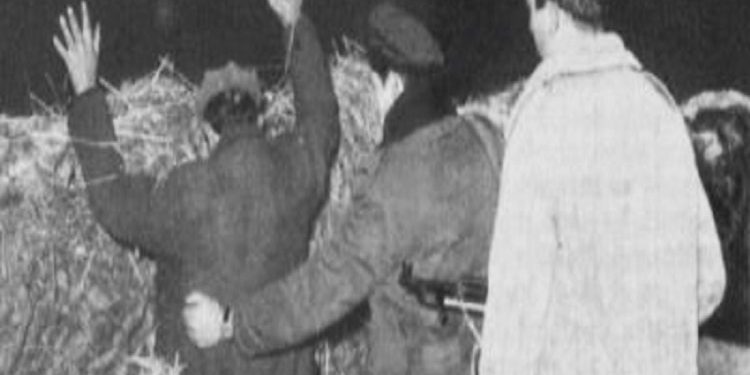
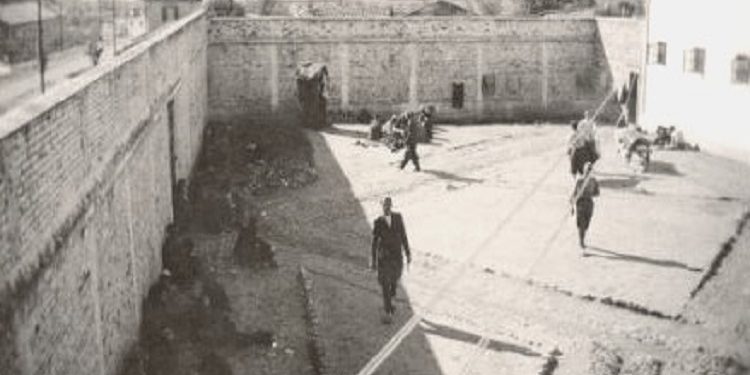
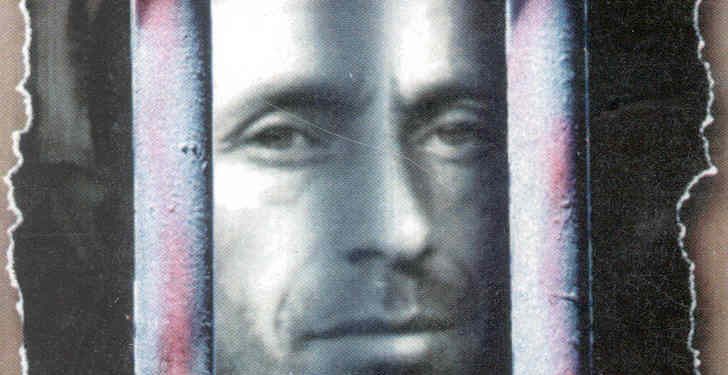
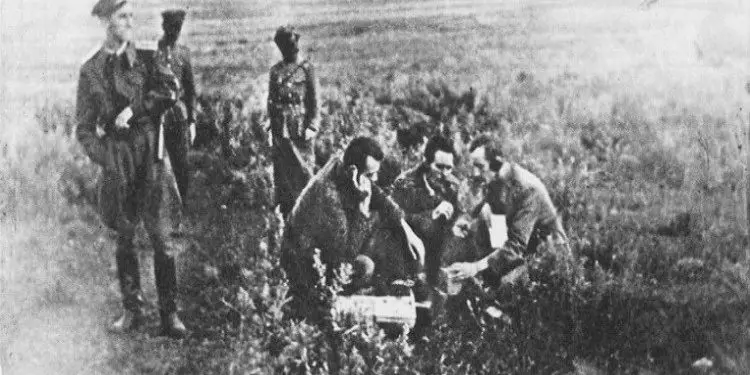
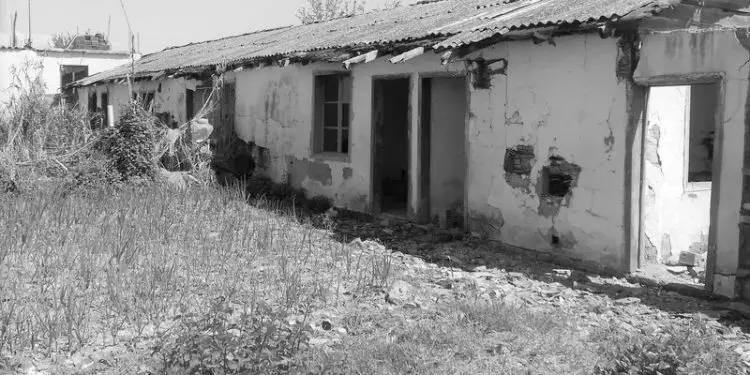


![“The ensemble, led by saxophonist M. Murthi, violinist M. Tare, [with] S. Reka on accordion and piano, [and] saxophonist S. Selmani, were…”/ The unknown history of the “Dajti” orchestra during the communist regime.](https://memorie.al/wp-content/uploads/2026/02/admin-ajax-3-350x250.jpg)
![“In an attempt to rescue one another, 10 workers were poisoned, but besides the brigadier, [another] 6 also died…”/ The secret document of June 11, 1979, is revealed, regarding the deaths of 6 employees at the Metallurgy Plant.](https://memorie.al/wp-content/uploads/2026/02/maxresdefault-350x250.jpg)


